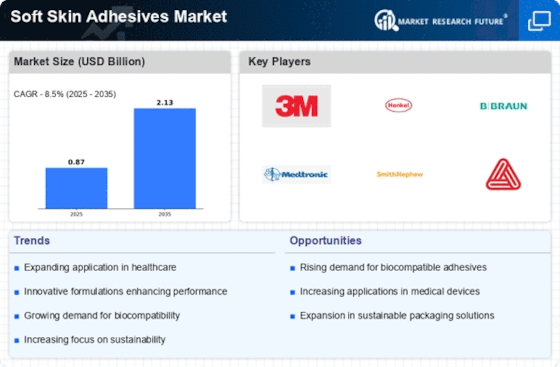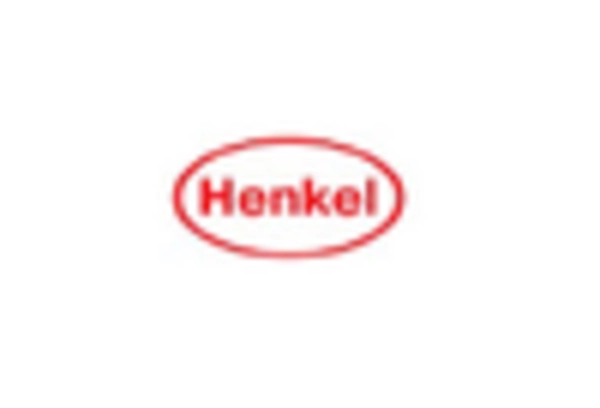Market Share
Soft Skin Adhesives Market Share Analysis
Before beginning a soft skin adhesives market share positioning plan, market research and segmentation are essential. Understanding different customer groups' needs is essential to customizing solutions. Leading companies prioritize product customisation to fulfill various client wants. Soft skin adhesives with different formulae and properties guarantee a diverse product range that answers specific preferences and sensitivities. Building trust with medical professionals is key to market positioning. Soft Skin Adhesives companies actively seek dermatologist and other medical expert endorsements, which boost market share and consumer trust. Market leaders promote allergen-free products because skin health is crucial. Customers, especially those with sensitive skin, want products without harsh chemicals and irritants, helping firms stay competitive. Consumer knowledge drives markets, thus educational activities are crucial. Businesses support consumer education programs on soft skin adhesives, skin-friendly compounds, and proper application. Creating a strong brand is strategic. Social media, targeted promotion, and event participation help companies persuade consumers to think about their soft skin adhesive products first. Supply chain efficiency is crucial for market share positioning. Businesses reduce lead times, optimize distribution networks, and maintain product availability to satisfy customers. Strategic pricing models help balance cost and quality. Consumer behavior and market trends inform pricing strategies that maintain profitability and attract a wide range of customers. The Soft Skin Adhesives industry needs constant innovation to stay competitive. Companies invest in R&D to develop new adhesive technologies to stay competitive and meet customer needs. Market leaders incorporate sustainability into their strategy to meet the growing demand for eco-friendly products. This includes using eco-friendly products, reducing packaging waste, and targeting sustainable customers. Examining international growth prospects is crucial. Product modification to local preferences and regulatory compliance aid market expansion. Companies actively seek and exploit consumer insights in product development and marketing strategies because they value customer feedback. This promotes customer-centricity and increases the company's market adaptability.


















Leave a Comment